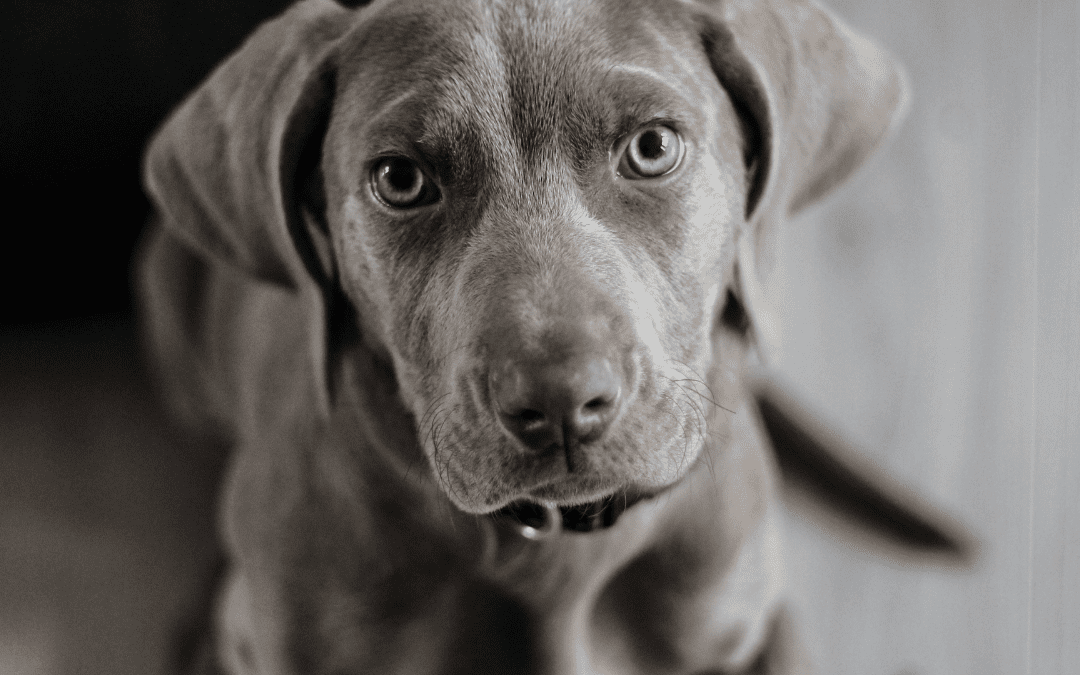Currently, around 5.4 million people in the UK receive treatment for asthma. Additionally, many companion animals (dogs, cats and horses) are diagnosed with conditions requiring an inhaler. This makes for many households with at least one metered-dose inhaler. It’s a given that many dogs like to chew on things and inhalers are no different, but what does it mean if your dog accidentally chews on or damages your inhaler? We consider what may happen to your pup and what you can do to help if they have inadvertently chomped down on an inhaler at home.
What problems can occur if my dog eats an inhaler?
Frostbite
The pressurised gas within the inhaler can be extremely cold when released, as may occur when an inhaler becomes damaged. This can, in turn, lead to irritation or even cold burns to the skin that comes into contact with it. Usually, in cases of dogs chewing on inhalers, this would be around or inside the mouth. This may lead to ulceration of the skin and can be very painful. Signs of mouth ulceration in dogs include reluctance to eat and increased drooling or whimpering. Some dogs may paw at their mouth when uncomfortable or seem more restless than usual. In rare cases, if the back of the mouth is affected, your dog may struggle to swallow or show changes in their breathing pattern. Your veterinarian will be able to examine your pet’s mouth for damage. Usually, this examination will require sedation. They will then provide pain relief as needed. Typically, the tissue damage will become evident within 24-48 hours of the incident.
Drug overdoses
Additionally, the contents will be forcibly expelled once punctured due to the pressurised nature of inhalers. Unfortunately, this can be in the mouth and result in your dog overdosing on the medication. The strength of the drug within the inhaler will dictate just how significant this overdose will be. Medications such as salbutamol (usually the blue-coloured inhaler) are of the most concern. The signs of toxicity are listed below. Corticosteroid inhaler toxicity is less likely, but you should still consult your veterinarian.
Signs of salbutamol toxicity
● Agitation or restlessness
● Unsteady on feet
● Increased thirst
● Weakness
● Shaking/twitching
● Elevation in blood temperature
● Irregular or rapid heartbeat
Without treatment, salbutamol toxicity can be very serious or even, in rare cases, fatal. The medication acts on the heart and the lungs and can cause permanent heart damage if overdose treatment is not undertaken. Fortunately, the side effects of an overdose can be successfully managed, and the prognosis for survival is excellent with appropriate treatment (Meronia et al., 2021).
Gastrointestinal obstructions
If your dog has eaten a part or all of the inhaler itself, there is also the risk that these pieces of plastic or metal may cause damage or obstruction to the gastrointestinal tract. While it is unlikely, the parts ingested may obstruct the stomach or intestines. This can make your dog extremely poorly or even lead to gut rupture, so make sure to let your vet know if any bits are missing.
What to do if your dog has eaten an inhaler?
If your dog has chewed on or even swallowed part of your inhaler, first things first, don’t panic. It is essential to call your veterinary care provider straight away. If this is outside of regular clinic hours, do not wait until the next day. Instead, phone the emergency out-of-hours care provider. Make sure to tell your veterinarian what medication was contained within your inhaler (corticosteroids or salbutamol, for example) and how full the inhaler was when your dog got a hold of it. If you are unsure which drug is in the inhaler, just tell your vet the colour of it. Your vet will then be able to advise you on whether you need to bring your pet straight into the clinic or whether monitoring at home is safe. Do not attempt to make your dog sick at home.
What may my vet do if my dog eats an inhaler?
Depending on the situation, there are several steps your vet may take to help your pooch. A thorough physical examination will be performed in every case, but depending on your pet’s history and unique presentation, your vet may recommend admitting to the hospital for observation and blood work, blood pressure and heart monitoring. It is also likely that symptomatic treatment may be needed, which will likely include being placed on a drip and medications to help control heart rate. In cases where there is a concern of obstruction, X-rays, ultrasound, or even surgery may be indicated.
How to avoid accidental ingestion
● Keep all inhalers stored away from where your pet can access them
● Teach your dog the leave command in case they find an inhaler on a walk. Consider using a basket muzzle while walking if your dog is a known scavenger.
● If you store your inhaler in your backpack or handbag, ensure this is hung out the way. Often, bags can contain treats or food that may pique your dog’s curiosity and lead to rummaging or accidental exposure to medications such as inhalers.
Final thoughts
If you or someone in your household has an inhaler, it is crucial to take proactive steps to ensure that it is never left somewhere your pup may have access. There are concerns for your pet’s health with all types of inhalers, but of specific worry are the salbutamol-containing inhalers (the blue ones) that can lead to significant problems with heart rate and blood electrolyte levels. Always speak to your vet in the event of a witnessed or suspected incident of an inhaler being chewed on by your dog. They will be able to provide tailored advice to your pet’s needs, which may include a trip to the emergency room to monitor and manage the potential toxicities that can occur.
FAQs
Help, my dog ate my inhaler. What do I do?
First of all, do not panic. Call your emergency veterinary provider straight away. Do not take a wait-and-see approach, as your dog may have ingested a toxic amount of drug, which can cause serious complications.
What happens when a dog eats an asthma pump?
Asthma pump contents are highly pressurised. When pierced by your dog, they may cause frost burns to the skin. The drug contents can lead to toxicity, and ingested pieces of plastic may obstruct the intestines. Therefore, if your dog has eaten or chewed on an asthma pump, you should immediately call your veterinary care provider.

